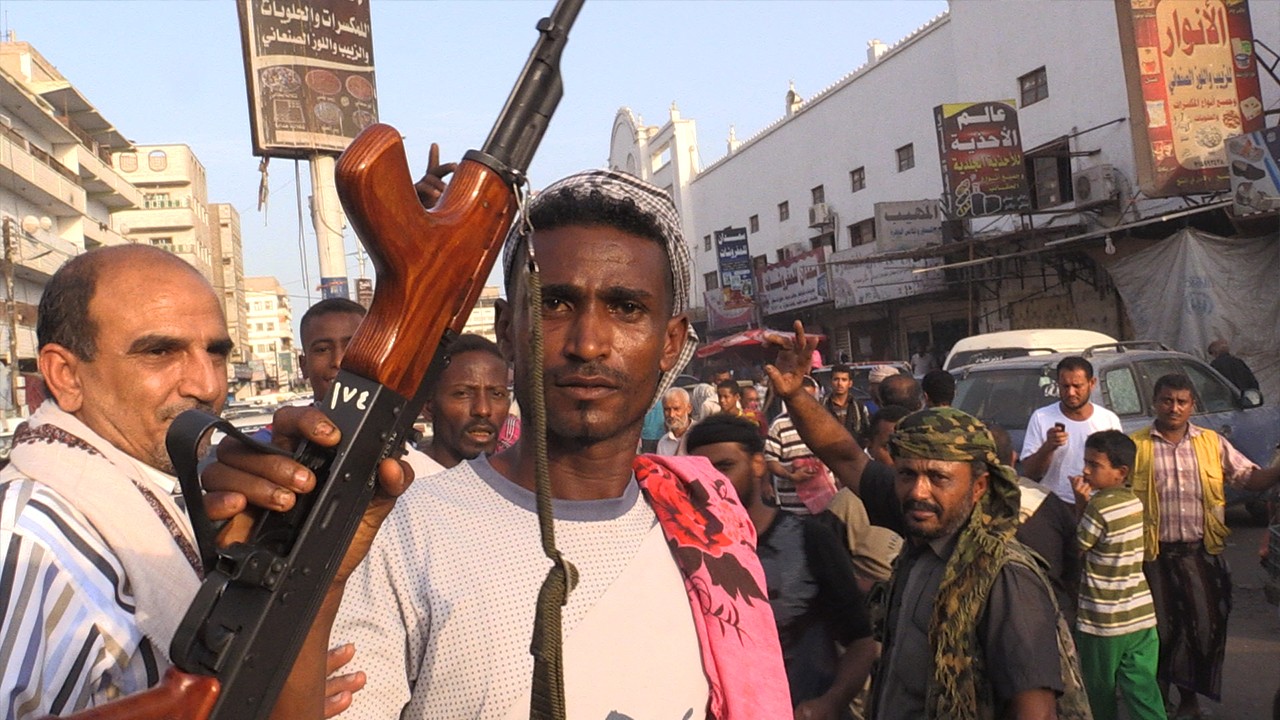Image via Facebook
Cholera — which the world has confined to history books — is endemic in Yemen. In less than five months, 663,451 suspected cases of cholera (the entire rest of the world has under 5,000) and 2074 deaths have been reported across 22 governates (96 percent of the country), the World Health Organization (WHO) told VICE Impact.After two and a half years of conflict, the situation in Yemen is not just critical, it is, according to the United Nations — the most critical, the world's largest humanitarian crisis. And with more than 10 million people requiring urgent assistance, and the world still largely oblivious to what is happening — it is only set to become worse."This is the second wave of an outbreak that started in October 2016. We are in the middle of the peak season for the spread of diarrhoeal diseases in Yemen," the WHO's Tarik Jasarevic told VICE Impact.In 2014, after years of local armed conflict, the Houthis (rebels from the north) alongside parts of the Yemeni military stormed into Sana'a, the capital, and forced the internationally recognized government, headed by Abdrabbuh Mansur Hadi, into exile. Months later, Saudi Arabia and a multinational coalition of Arab nalaunched a military campaign to push by the Houthis and restore the government. Today, while the airstrikes and the fighting continues, the country remains split in two. The Houthis in the west, and overthrown government and their Arab backers in the south and east.
Check out more videos from VICE:
"Many deaths are largely unaccounted for, unnoticed and unrecorded. Girls, boys, women, and men are dying of malnutrition and diseases that are easily preventable and treatable," Jasarevic explained. "There has been a gradual disintegration of the municipal water infrastructure and systems in a context where few civil servants are being paid, and a relatively small trigger, like a period of heavy rain or burst pipes, creates a backflow of sewage into water pipes, an overflow of latrines and septic tanks, etc."With 16 million Yemenis unable to access clean water and sanitation and, garbage piling up in the streets, the number of people affected by cholera is only expected to rise. And it's not just the water infrastructures that have been hit. With more than half of all health facilities closed due to damage, destruction, and lack of funding, "Yemen's health system is on the verge of collapse," Jasarevic told VICE Impact.He explained that shortages in medicines and supplies are persistent and widespread and people with chronic diseases are dying because they cannot access life-sustaining treatments.With most Yemenis dying from preventable diseases, WHO and UNICEF are working with local health authorities to do just that."Individuals have an important role to play in keeping themselves and their families safe from cholera," Jasarevic explained, which is why the organizations conducted a nationwide house-to-house awareness campaign last month engaging more than 13 million people in 21 governates."Of course, the priority must be 'how can we end the conflict?'' Rafat Al-Akhali, Yemen's former Youth, and Sports Minister told VICE Impact. "However, increasingly, it seems that the answer to this question is out of the hands of anyone but the directly fighting parties (local and international). Therefore, there is a critical need for a parallel effort to address, 'How can things be improved until the war comes to an end?'" he added.Focusing on development, despite, the situation is, according to him, critical."The 'war mentality' first of all is a zero-sum mentality, and it gets people to a depressed state that there is nothing to be done other than fight. It is very dangerous when the only option presented to people is to fight, as reaching an eventual settlement becomes difficult and more costly," he explained."The West can solve the war in Yemen. It just doesn't have a will (yet). Youths need to help create that will," Farea Al-Muslimi, the co-founder of the think tank, the Sana'a Centre, told VICE Impact."The U.S. needs to immediately stop blocking the creation of an international inquiry so Human Rights violations can be investigated in Yemen. Blocking the inquiry means banning justice for Yemenis and encouraging local and radical actors to thrive and not commit to war rules," Al-Muslimi argued, "there needs to be one like in Syria."Stay informed about the health crisis in Yemen and the response provided by WHO and partners, help raise awareness of the situation and make sure Yemen makes the headlines by sharing news bulletins about Yemen on social media. More importantly, you can encourage your representatives to do something about Yemen.
Advertisement
The World's Largest Humanitarian Crisis
Beyond the direct casualties of the armed conflict — the airstrikes have consistently lacked respect for civilians and kill on average 75 people every day, according to WHO, many Yemenis die in silence."Individuals have an important role to play in keeping themselves and their families safe."
Check out more videos from VICE:

"Many deaths are largely unaccounted for, unnoticed and unrecorded. Girls, boys, women, and men are dying of malnutrition and diseases that are easily preventable and treatable," Jasarevic explained. "There has been a gradual disintegration of the municipal water infrastructure and systems in a context where few civil servants are being paid, and a relatively small trigger, like a period of heavy rain or burst pipes, creates a backflow of sewage into water pipes, an overflow of latrines and septic tanks, etc."
Advertisement
What Is Being Done
"40,000 volunteers traveled from door to door, providing information on proper hand-washing, preparation of oral rehydration solution, and proper home care of the people with cholera, including referral to health facilities."But the bombings, which have heavily damaged Yemen's infrastructure, have not only undermined the country's already weakened economy, but made it harder for humanitarian organizations such as UNICEF to bring in and distribute aid."There is a critical need for a parallel effort to address, 'How can things be improved until the war comes to an end?'"
Advertisement